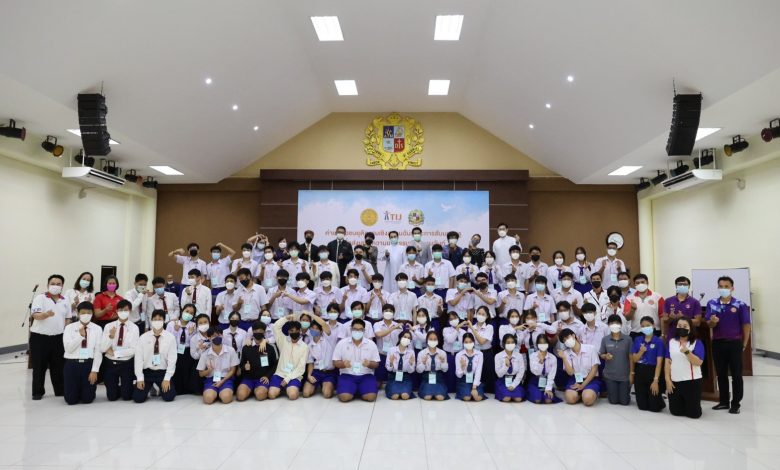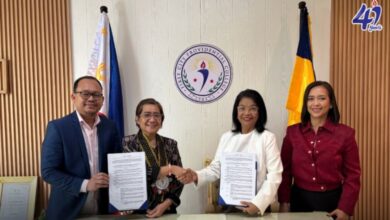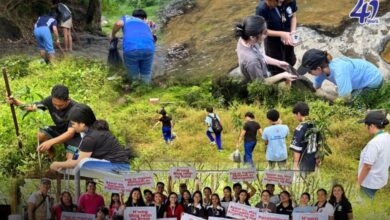The Faculty of Learning Sciences and Education, Thammasat University organizes a youth camp, promoting the restorative justice.

The Faculty of Learning Sciences and Education, Thammasat University led by Asst. Prof. Dr. Adisorn Chantarasuk, Dean, Asst. Prof. Dr. Thitikarn Astarakul, Associate Dean for Academic Affairs and faculty members together with the Thailand Institute of Justice (TIJ) and the St. Gabriel Foundation Thailand apply the restorative justice in the dimension of educational institutions by initiating a pilot project, “Policy Advocacy Campaign to Promote Restorative Justice in Schools” in the form of restorative justice incubation activities in schools for youth under the concept of Prototype of RJ in School by Students for Students, having 70 high school students to exchange knowledge and learn about the restorative justice.
Asst. Prof. Dr. Adisorn Chantarasuk, Dean of the Faculty of Learning Sciences and Education, Thammasat University discussed the idea of implementing the restorative justice in schools and educational institutions that there is a fundamental principle which is to bring humanity back to justice by looking at the other side as equal human beings so that all parties involved can hear each other and understand their own feelings and the other person’s feelings, understanding the damage and taking a serious listening in order to move forward.
“Conflicts are normal, yet conflict management is not normal in society. This is because we often use the power to command and force the offender to make amends however, they may recompense without feeling guilty. The most important thing is how to make them sense the humanity and acknowledge the impact on others, and try to reconcile with others including their own family by trying to foster these things to happen in schools and educational institutions to develop skills and apply them in the future as well as expanding opportunities to other children as well,” Asst. Prof. Dr. Adisorn said.
However, the Faculty of Learning Sciences and Education Sciences, Thammasat University will play an important role in empowering students and developing teachers to obtain the ability in initiating restorative justice through learning from direct experience. This will allow them to thoroughly understand the process and so that the practice and action taken will not be just telling the children to forgive, accept, or apologize their friends which is considered a process that takes a long time to foster trust, to make children feel like they are heard and that they are understood, and there is someone ready to walk along side them. It is hoped that the project with TIJ can be facilitated to expand opportunities in other places as well.
“In our society, there are various conflicts, whether of opinion, ideology, beliefs, values, differences among them. Society needs tools to deal with these conflicts and the restorative justice will help people to establish oneself and listen to each other. This means that if we produce graduates who understand how to organize the learning process to manage the suffering of themselves and others, it will be very beneficial to Thai society. In the future, it can be expanded to other target groups besides the school.”
The pilot project between Faculty of Learning Sciences and Education, Thammasat University, TIJ and St. Gabriel Foundation Network is a youth camp that student representatives from the Student Council and teachers come together to participate in workshops. Most importantly, this group of students are representatives in promoting communication and understanding between fellow students, teachers and parents to acknowledge the restorative justice practices. It is expected that this project will enable new approaches to resolve conflicts peacefully by having teachers and/or students participating in the workshops to initiate, present and develop further to promote participation in all sectors




